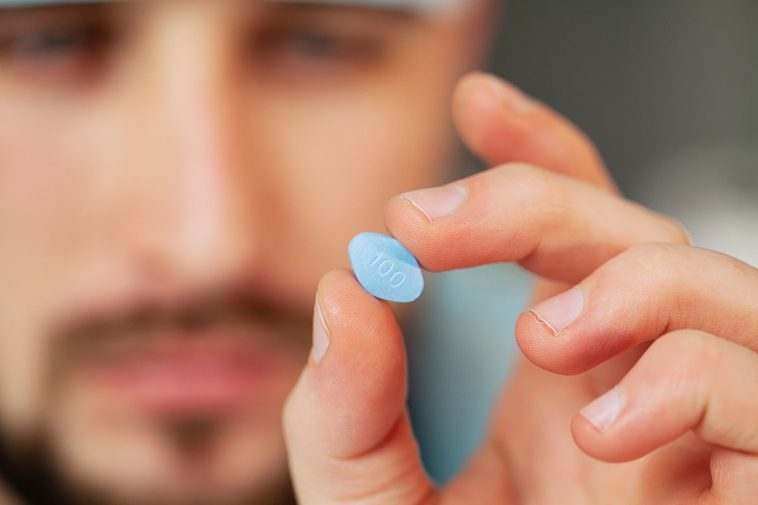- 102shares
Viagra is probably one of the most talked-about and controversial medications in the world. Although taking it can significantly improve your sex life, it can also lead to several side effects you should be aware of.
Read further on to find out more about these side effects.
Lowers Blood Pressure
Sildenafil, the main ingredient of Viagra, is an inhibitor that facilitates an erection by enhancing nitric oxide in the blood. This compound is a vasodilator, which means it dilates blood vessels and significantly lowers blood pressure levels.
People that have hypotension or take nitroglycerin shouldn’t take Viagra.
Affects Vision
Several studies investigated the connection between taking Viagra or other medications containing sildenafil and vision problems. Some people experienced blurry vision, while others lost sight for more than 24 hours.
The scientists stated that more research is necessary but concluded that vision disturbances could be related to sildenafil sensitivity.
If you’ve experienced eye-related issues upon taking Viagra for the first time, don’t hesitate to reach out to your doctor. You may be sensitive or allergic to sildenafil.
Causes Dizziness
One of the potential side effects of taking Viagra is dizziness or lightheadedness. The symptom typically disappears on its own after a short time and doesn’t leave any long-term consequences. However, if the dizziness persists, you should contact your doctor.
Be Careful When Taking Viagra
While Viagra can significantly improve the sex life and boost confidence, it’s essential to use it only if prescribed to you by a doctor. Don’t forget to take it only as prescribed because higher amounts can lead to severe side effects such as chest pain, burning urination, or painful erections.
,










